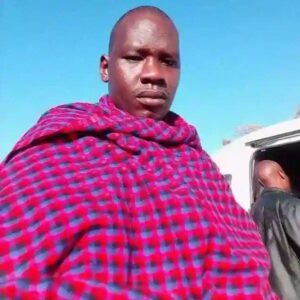Information reaching Kossyderrickent has it that Guinea Conakry is the cocaine hub in Africa as journalist confirms Tinubu has dual citizenship from Guinea Conakry. (Read More Here).
Taking to social media, Popular Nigerian journalist, David, shared the detail page from Bola Ahmed Tinubu’s international passport. (Read More Here).
From there, it showed he’s from Guinea Conakry.
Information reads:
“Tinubu has dual citizenship, being a citizen of Nigeria and Guinea
“The Nigeria constitution states a person is disqualified from being a president if they have voluntarily acquired the citizenship of another country other than that of Nigeria.
“Tinubu is not qualified to be the president of Nigeria. This is no longer a fight against a drug offender. This is a fight to protect our constitution and the future of the country.”
A lot of things change without changing, that’s according to the this year’s Global Cocaine Report 2023, released by the UN Office on Drugs and Crime (UNODC).
If the global supply of the tropane alkaloid extracted from the coca leaf seems to have officially increased by 35% in less than two years, it’s difficult to know if the statistics reflect an increased efficiency of law enforcement seizure measures (with seizures multiplying), the opportunity provided by improvements to coca leaf-to-cocaine hydrochloride conversion, or a noticeable increase in the demand for psychotropic drugs, particularly after a down period during the onset of Covid-19.
If the main destinations for cocaine appear unchanged over time – particularly in Western and Asian countries – its trajectory has evolved.
With Guinea-Bissau having been identified as the African drug epicentre in the past 20 years, the continent’s western region has now grown to become its cocaine hub, courtesy of Colombia and Brazil.
A variety of oceanic vessels are responsible for transporting the illicit merchandise from the Americas to African coastal countries like Senegal, Guinea, Côte d’Ivoire, Ghana, Benin, and Nigeria.
These destinations serve as transit zones to Asia, notably by way of East or Southern Africa, where drugs can be concealed in the luggage of seminar participants, in attieke containers, or in the stomachs of drug mules, known as individuals who swallow cellophane bales ahead of international travel.
The confessions began two weeks ago on state television in what is now known in Guinea as “The Dadis Show,” broadcasts that have caused a spike in TV viewership and are the constant topic at lunch and over coffee.
First up was Ousmane Conte, the feared eldest son of the deceased dictator, who was untouchable under the previous regime. He admitted what everyone in Guinea knew but did not dare say.
“I acknowledge that I was in the drug business — and I regret it,” said Conte, whose confession was taped inside his detention cell.
In a jailhouse interview this week with The Associated Press, Conte explained how he did it. He said a friend brought in “medicine” for his humanitarian foundation, using a Red Cross plane that landed at night at the international airport in the capital, Conakry. When the plane arrived, his friend called to wake him. Conte then went to the airport accompanied by the presidential guard to secure the cargo, he said.
Conte claimed he did not know at first that the cargo contained cocaine. But his friend later told him, he said, and Conte accepted a $300,000 bribe.
As the people of Guinea sit transfixed before their TV sets, top government officials one after another are confessing to their role in a lucrative international cocaine trade. Organized by a military junta that seized power three months ago, the confessions offer unprecedented insight into an exploding drug trade in West Africa, one that connects coca leaves grown in South American fields to cocaine in European discos.
The confessions paint a picture of an illicit trade conducted with total impunity, with the help of officials, members of the president’s family and security forces. They also show the large role Guinea and other West African countries are playing as drug hubs, and how vulnerable they are to the corrupting influence of drug dollars.
A recent United Nations report found that at least 46 tons of cocaine have been seized en route to Europe via West Africa since 2005, bringing profits that sometimes exceed the entire defense budgets of countries it passes through. Before that time, less than a ton a year was seized from the entire continent.
“The vast majority of cocaine that is destined for Europe is now going through West Africa,” said Michael Braun, who was the U.S. Drug Enforcement Administration’s operations chief when he retired in October.
Discover more from KossyDerrickent
Subscribe to get the latest posts sent to your email.








